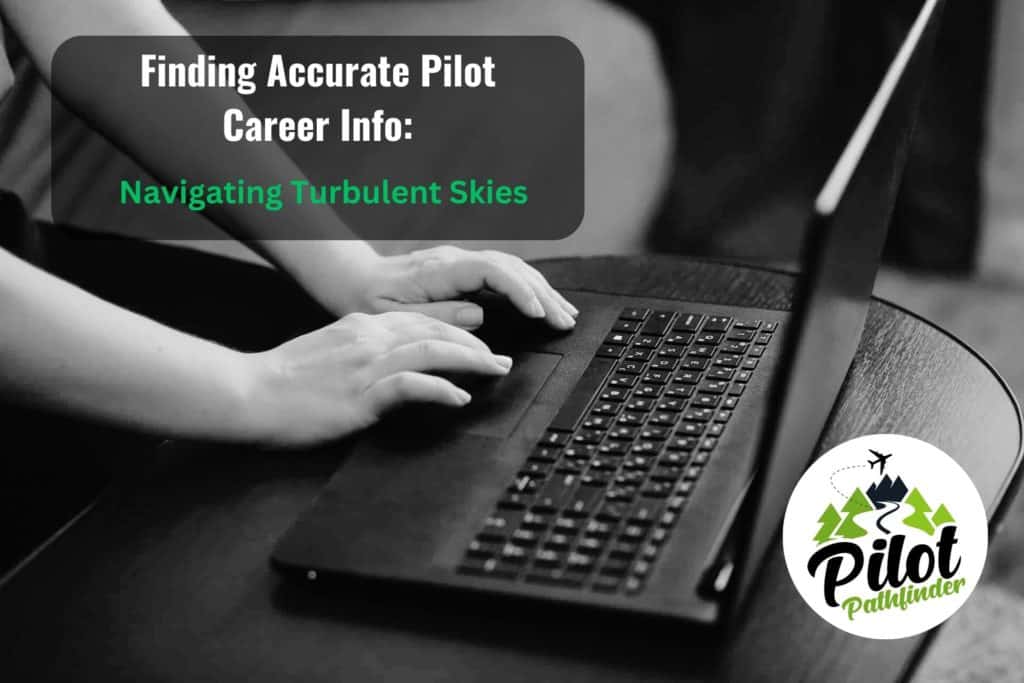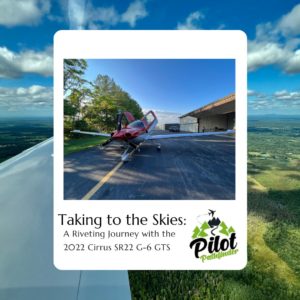The Importance of Accurate Information for Aspiring Pilots
Aspiring pilots are often drawn to the allure and glamour of a career in aviation. From the thrill of takeoff to the breathtaking views at cruising altitude, there are countless reasons why individuals may consider pursuing a pilot career. However, with so many paths to becoming a pilot, navigating the complex requirements and finding accurate information can be an overwhelming and frustrating experience.
It is crucial for aspiring pilots to have access to accurate information about pilot careers, including training requirements, job opportunities, and potential challenges. The consequences of relying on inaccurate or outdated information can be severe, as it may lead to missed opportunities or even endangerment in the air.
One challenge that aspiring pilots face when seeking accurate information is the abundance of conflicting sources available. With so many websites and forums dedicated to aviation topics, it can be difficult to sift through misinformation and find reliable resources.
Additionally, many websites that purport to offer helpful information about pilot careers may be outdated or biased toward certain pathways. Without accurate information about training requirements and job opportunities, aspiring pilots risk wasting significant time and money pursuing dead-end routes or missing out on promising opportunities.
For example, an individual who pursues a military route without fully understanding the long-term commitment required may find themselves stuck in a position that no longer aligns with their goals. In addition to practical considerations like training requirements and job prospects, accurate information is also essential for ensuring safety in flight.
Outdated or incomplete knowledge about emergency procedures could potentially endanger passengers onboard an aircraft. Overall, aspiring pilots must have access to reliable resources when navigating the complexities of pilot careers.
Inaccurate or incomplete information has tangible consequences that impact both individual aspirations and public safety in flight. Proper education and access to reliable resources from reputable sources like aviation schools or industry associations is crucial for anyone interested in pursuing this exciting yet challenging career path successfully.
The Allure and Misinformation of Pilot Careers
It’s no secret that pilot careers come with an allure and glamour that few other professions can match. The idea of soaring through the skies, commanding a powerful aircraft, and traveling the world in style is undeniably appealing. However, this romanticized image of pilots has also led to widespread misinformation and unrealistic expectations for aspiring aviators.
The Glamour of Piloting
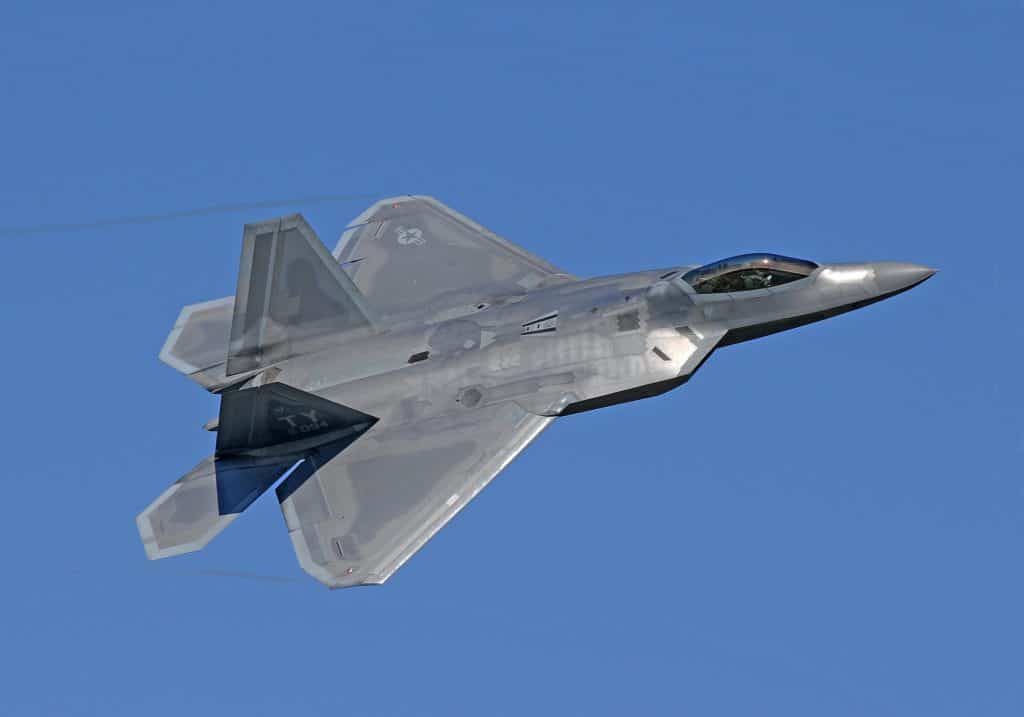
The media has played a significant role in shaping our perceptions of pilots. We’ve all seen movies like “Top Gun” or television shows like “Airwolf” that portray pilots as fearless heroes who conquer the skies, save lives, and win hearts along the way. Even advertisements for airlines tend to feature charismatic pilots who exude confidence and charm.
This portrayal of pilots as glamorous figures can be incredibly persuasive, especially for young people who are considering their career options. It’s not hard to see why so many aspiring aviators are drawn to the idea of being a pilot; after all, who wouldn’t want to be part of such an exciting profession?
Misinformation and Unrealistic Expectations
However, this glamourized image often leads to misinformation about what it actually takes to become a pilot. Many people assume that being a pilot is all about flying planes and seeing the world without realizing the immense responsibility that comes with piloting an aircraft.
Additionally, many believe that becoming a pilot is relatively easy – just sign up for flight school or join the Air Force, get your license, and you’re good to go! In reality, becoming a licensed pilot requires years of rigorous training and experience before one can even think about operating commercial flights.
This misinformation leads many aspiring pilots down unrealistic paths toward their dream career. They may invest time and money into flight schools or military training programs only to discover later on that they aren’t cut out for the demands of the profession.
Recap
While there’s no denying the appeal of pilot careers, it’s important to recognize that the glamourized image presented in media is often far removed from reality. Aspiring pilots need to be aware of the challenges and responsibilities that come with piloting an aircraft, and they should seek accurate information about what it takes to become a licensed pilot. In short, pilots may be glamorous figures in popular culture, but becoming one requires far more than just good looks and a charming smile.
The Complexity of Pilot Careers
Paths to Becoming a Pilot
Becoming a pilot is not a one-size-fits-all journey. There are various paths that one can take, including military, civilian, and international routes.
Military pilots are trained by the government and typically have their education costs covered. However, this also means that they may be required to serve for a set period of time after completing their training.
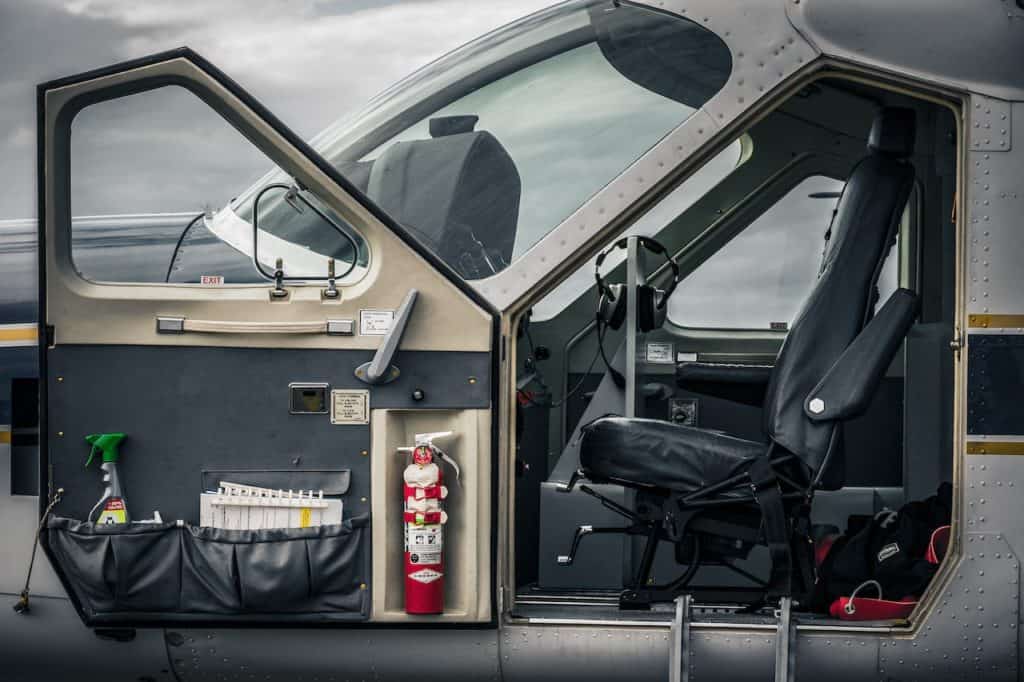
Civilian pilots, on the other hand, have to pay for their own training and can attend an aviation school or receive training from an airline. Many aspiring pilots opt for this route as it gives them more control over their careers.
International routes are often overlooked but can be an excellent opportunity for those who want to work abroad. However, navigating the different requirements and regulations in different countries can be challenging.
Different Types of Pilots
There are different types of pilots – commercial, private, and military – each with unique requirements. Commercial pilots usually work for airlines or other commercial ventures and require more training than private pilots.
Private pilots fly smaller aircraft and do not need as much training as commercial pilots. Military pilots also undergo intense training but have different skill sets as they often operate fighter jets or helicopters.
There is no single path to becoming a pilot because there is no single type of pilot. The complexity arises when one has to navigate these various paths to find the right one for them.
The Challenge of Finding Accurate Information
One of the difficulties in finding accurate information about becoming a pilot is sifting through all these complexities. The internet has made it easier than ever before to research different career paths, but with so many sources available online, it’s difficult to know which ones are reliable. Moreover, many websites fail to include up-to-date information on changing regulations or eligibility requirements which may lead prospective pilots down the wrong path.
The lack of structure in navigating these complexities is a significant issue for aspiring pilots. Young adults who are interested in aviation have to decide what type of flying they want to do, what training paths are available, and how much they can afford to spend – all while trying to find accurate information about the process.
What Can Be Done?
To address this challenge, there needs to be more clarity regarding the different paths to becoming a pilot. Prospective pilots need access to reliable resources that will provide them with accurate information about their career choices. Aviation schools and airlines should be more transparent about their program requirements and offer up-to-date information on changes in regulations.
The Federal Aviation Administration (FAA) could make an effort to update its website regularly and make it more user-friendly for those seeking information on pilot careers. Navigating the complexities of becoming a pilot can be daunting.
Aspiring pilots should take their time researching different options and sources of information before committing themselves fully. Education providers in the aviation industry should also work harder at providing accurate and up-to-date information that will help prospective pilots make informed decisions about their future careers.
The Role of Technology in Pilot Careers
Revolutionizing the Aviation Industry
Let’s face it, technology has changed almost every aspect of our lives. So, it should come as no surprise that it has revolutionized the aviation industry as well. From navigation systems to communication tools, technology has made flying safer and more efficient than ever before.
We have come a long way from paper maps and radio communication. But with these advancements comes a new set of challenges for pilots.
While technology has made it easier to fly in many ways, it also requires more complex training and understanding than ever before. Pilots must now be proficient in using modern equipment like GPS and autopilot systems, which can add an extra layer of stress to an already demanding job.
Changes in Pilot Training and Requirements
Technology has also led to changes in pilot training and requirements. As airlines adopt new technology, they require their pilots to be trained on how to use it effectively. This means that aspiring pilots must now acquire more extensive knowledge about computer systems and automated flight controls than ever before.
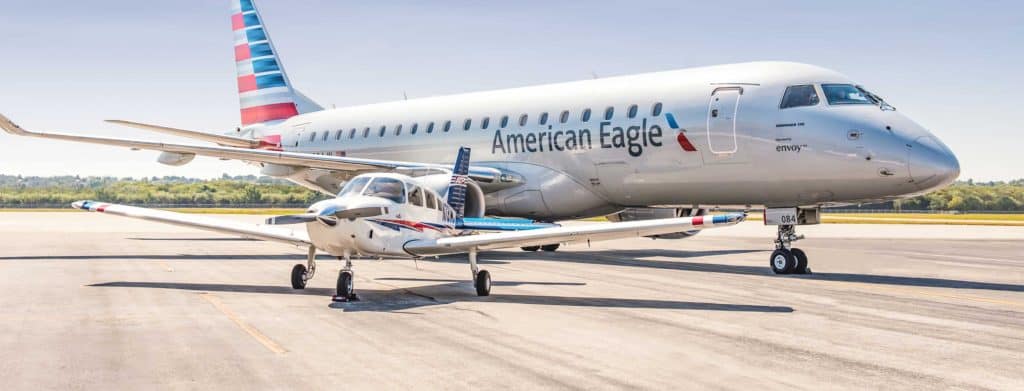
Moreover, the increasing complexity of planes is leading to stricter certification requirements for pilots. Nowadays, commercial airline companies require their pilots to have an Airline Transport Pilot (ATP) certificate which demands a higher level of education, and training hours; experience gained by working as a co-pilot or first officer for several years are some examples.
Misleading Outdated Information
Outdated information about pilot careers can be misleading for aspiring pilots because they might not realize what is expected from them or how long their training will take if they only read old publications or listen to stories told by retired pilots from another era. One example is how modern technology is revolutionizing aerodynamics studies making planes fly faster while consuming less fuel; however, this wasn’t always true: older models were less efficient and required more fuel to reach the same speed. This means older publications may not mention the same levels of fuel efficiency as those found today.
Another example is the increasing reliance on automation in modern planes; this has led to changes in how pilots fly planes, but old manuals may not reflect that change. If an aspiring pilot only reads these outdated manuals, they might miss important new procedures that could be critical in an emergency.
Recap
Technology has completely changed the aviation industry and its impact on pilot careers cannot be ignored. It has made flying safer and more efficient than ever before, but it also poses new challenges for pilots who must now acquire more complex skills and knowledge. It is important for aspiring pilots to stay up-to-date on the latest technology advancements and requirements so they can make informed decisions about their training path.
Outdated information can lead to misconceptions about what it takes to become a pilot or what their job responsibilities will be like in modern planes As technology continues to evolve, it will undoubtedly bring both benefits and challenges for pilots, as well as other professions associated with aviation; nevertheless one should embrace change knowing that without it progress would stall indefinitely leaving us behind; however, we must strive for a balance between innovation and tradition always keeping safety first!
The Importance of Accurate Information
It is crucial for aspiring pilots to have access to accurate information when considering a career in aviation. The world of flying can be complex and confusing, with many different paths to becoming a pilot, each with its own unique requirements. Without accurate information, aspiring pilots may make critical mistakes that could cost them their careers or even their lives.
One of the most important reasons for having accurate information is safety. Pilots are responsible for the lives of their passengers and crew, as well as their own lives.
If they do not have the necessary skills and qualifications to handle an emergency situation, the consequences could be disastrous. Accurate information about pilot training and certification requirements is therefore critical to ensuring that pilots are properly trained and qualified to fly.
Inaccurate or outdated information can also lead to unrealistic expectations among aspiring pilots. Many people are drawn to the glamour associated with being a pilot without fully understanding the challenges and complexities of this career path.
Without accurate information about what it takes to become a pilot, they may underestimate the level of commitment required or overestimate their own abilities. Moreover, relying on inaccurate or outdated information can lead pilots down the wrong path in terms of career trajectory.
Different types of pilots (commercial, private, military) require different levels of training and certification, as well as specific experience in related areas such as navigation or air traffic control. It is essential that aspiring pilots understand these distinctions so they can choose the right path for themselves.
Access to accurate information should be considered a basic right for anyone who is serious about pursuing a career in aviation. The aviation industry has an obligation to provide reliable sources of information that are up-to-date and easily accessible online or through other channels.
Consequences Of Relying On Inaccurate Or Outdated Information
The consequences of relying on inaccurate or outdated information when pursuing a career in aviation can be dire. Pilots who are not properly trained or certified may not only put their own lives at risk but also those of their passengers and crew.
Accidents due to pilot error are a major cause of aviation incidents worldwide. Inaccurate information can also lead to disappointment and disillusionment for aspiring pilots.
If they are led to believe that the path to becoming a pilot is easy or straightforward, they may be unprepared for the challenges that lie ahead. This can result in them dropping out of training programs or abandoning their career goals altogether.
Furthermore, relying on outdated information can leave aspiring pilots ill-equipped to deal with the rapidly changing nature of the aviation industry. With advances in technology and new regulations being introduced all the time, it is essential that pilots stay up-to-date on the latest developments if they want to succeed in this field.
Providing inaccurate or outdated information is a disservice to those who dream of becoming pilots. These individuals deserve access to reliable sources of information so that they can make informed decisions about their careers.
It is the responsibility of everyone in the aviation industry – from airlines and flight schools to government agencies and professional associations – to ensure that accurate information is readily available. Obtaining accurate information about pilot careers should be a top priority for anyone considering pursuing a career in aviation.
The consequences of relying on inaccurate or outdated information can be disastrous both for individual pilots and for the safety of air travel overall. Aspiring pilots should take advantage of all available resources – including government websites, industry publications, forums, and social media groups – in order to get a full understanding of what it takes to succeed as a pilot today.
Challenges in Finding Accurate Information
The Problem with Conflicting Sources
One of the biggest challenges when it comes to finding accurate information about pilot careers is the abundance of conflicting sources. Anyone can write a blog post or create a YouTube video claiming to be an expert on aviation, but not all sources are created equal.
It can be incredibly frustrating for aspiring pilots trying to make informed decisions about their career paths. One source may claim that military experience is essential for becoming a commercial airline pilot, while another may suggest that civilian training is just as valuable.
Some sources might recommend one type of flight school over another, while others may disagree entirely. With so much contradictory information out there, how can anyone be sure what to believe?
The Danger of Outdated Websites
Another challenge in finding accurate information about pilot careers is the prevalence of outdated websites. Aviation regulations and requirements change frequently, yet many websites have not been updated in years. As a result, aspiring pilots may come across information that was once true but is no longer accurate.
For example, a website may recommend a specific type of aircraft for flight training because it was popular 10 years ago. But technology has advanced since then and there are now better options available.
Similarly, some websites may still recommend certain certifications or qualifications that are no longer required or even relevant. It’s important for aspiring pilots to do their due diligence and ensure they’re relying on up-to-date resources.
The Issue with Hidden Costs
Cost is always a factor when it comes to pursuing any career path, but it can be particularly challenging for aspiring pilots due to hidden costs. Flight training can be expensive enough on its own, but there are often additional fees that aren’t immediately apparent – such as exam fees, fuel surcharges, and simulator rental costs. Aspiring pilots need to know exactly what they’re getting into before committing to a training program.
But it can be difficult to find accurate information about these hidden costs. Some flight schools may downplay or even hide these charges altogether, leaving aspiring pilots with unexpected bills and financial stress.
The Difficulty of Finding Mentorship
While there are plenty of resources available for aspiring pilots, finding mentorship can be a challenge. A mentor who has already navigated the complex world of aviation can be invaluable in providing accurate and reliable information. But finding the right mentor isn’t always easy.
Many experienced pilots are busy with their own careers and may not have the time or energy to mentor someone else. And even if they do, it can be tough for aspiring pilots to build relationships with industry experts when they don’t have any connections yet.
The Impact on Diversity in Aviation
The challenges of finding accurate information about pilot careers can have a negative impact on diversity in aviation as well. Without accurate information and guidance, individuals from underrepresented groups may not realize that becoming a pilot is a viable career path for them.
This lack of diversity can perpetuate stereotypes and limit opportunities for talented individuals who could contribute greatly to the aviation industry. It’s crucial that accurate information about pilot careers is accessible to everyone, regardless of background or experience level.
Resources for Finding Accurate Information Now that we’ve discussed the challenges of finding accurate information about pilot careers, it’s time to talk about where you can turn for reliable guidance. Unfortunately, there are many websites and organizations that claim to provide accurate information but fail to do so.
It’s crucial to do your research and only rely on reputable sources. Here are some trustworthy resources that aspiring pilots can turn to:
1. Federal Aviation Administration (FAA)
The FAA is responsible for regulating all aspects of civil aviation in the United States. Their website contains a vast amount of information about pilot training, certification, and regulations. Aspiring pilots should start by checking out their guide on How to Become a Pilot.
2. Aircraft Owners and Pilots Association (AOPA)
The AOPA is the largest aviation community in the world, representing over 300,000 members. They offer a wealth of information about becoming a pilot, including articles on training programs, scholarships, and career opportunities.
3. National Air Transportation Association (NATA)
The NATA is a trade association representing companies that provide air transportation services. Their website includes resources for those interested in pursuing careers in aviation maintenance or flight operations.
4. Aviation Schools Online is an online directory of aviation schools and training programs around the world.
You can search for schools by location or type of program and read reviews from current or former students.
5. Professional Pilot Magazine
Professional Pilot magazine is a publication aimed at commercial pilots and those interested in pursuing careers in commercial aviation. They cover industry news, regulations updates, career advice, and more.
It’s important not to rely solely on one source when researching pilot careers; instead use multiple resources to verify information and gain different perspectives.
Being an aspiring pilot today requires doing your homework before making any decisions towards this career path otherwise you may end up frustrated or disappointed due to relying on inaccurate information. The complexities of the aviation industry can make it difficult to find reliable and accurate information, but there are trustworthy resources available for those willing to put in the effort.
By turning to reputable sources like the FAA, AOPA, NATA, Aviation Schools Online, and Professional Pilot magazine, aspiring pilots can gain the knowledge and guidance they need to pursue their dream careers. It’s important to remember that ultimately your success as a pilot will depend on your own determination and dedication.
Becoming a pilot requires hard work, sacrifice, and taking responsibility for your own career path – don’t let inaccurate information hold you back from achieving your goals. With time, effort, research, and reliable guidance you can navigate through the difficulties of finding accurate info about pilot careers so that you’re well-informed when making critical decisions that will shape your future.

